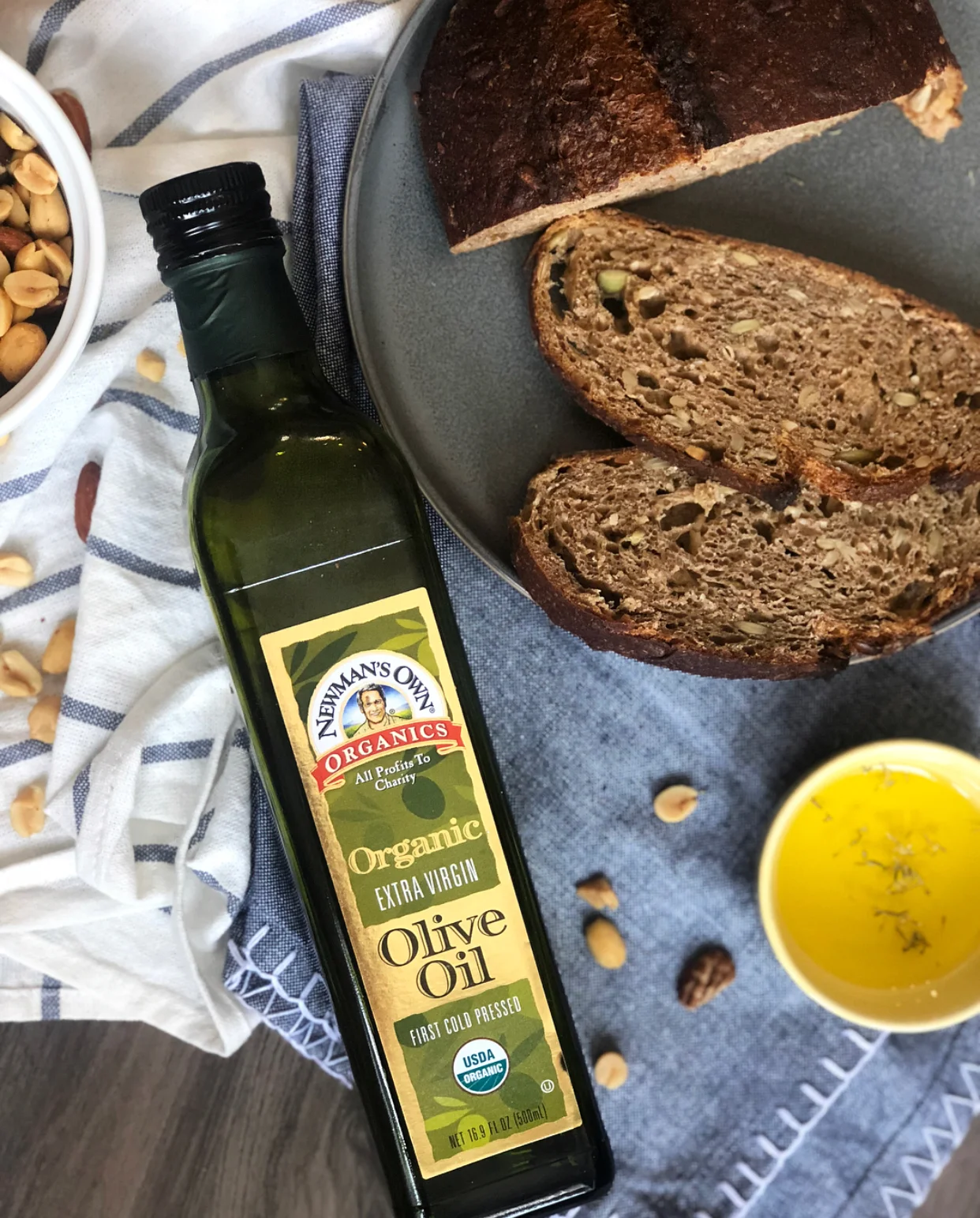Sustainability Profile: Cooking Oils
Deciding which cooking oils are best for the planet, your health and your wallet can be supes overwhelming. In this post, I’ll tell you all about the coolest kids in the oil aisle.
Palm Oil
Palm oil is basically a mega bummer for the environment. The problem with palm oil is that it's super cheap and super versatile, so it's in really high demand.
This demand has led to unsustainable deforestation and burning, which are putting our sweet animal friends at risk and just decimating the biodiversity of lands that were once tropical forests.
Despite its cheapness and possible health benefits, you should basically avoid palm oil like the plague, even in your non-cooking life.
There is one exception to this. If your palm oil has an RSPO (Roundtable on Sustainable Palm Oil) label, that means it's not harming the environment or any of the peeps involved, so go ahead and buy.
bottom line: you should almost always pass on palm oil.
Vegetable Oil
Vegetable oil is kind of a Frankenstein oil because it's not made from one particular vegetable. Rather, it's made from a combo of soybean, corn, canola, soy, peanut, olive, sesame, safflower, sunflower, cottonseed and palm oils.
Because the stuff marketed as vegetable oil is such a mish-mash, different vegetable oils will have different sustainability and health issues associated with them. Also, you probably won’t be able to find organic or Fair Trade versions.
It is supes cheap, but don’t fall for it. You and the planet will probably be better off just choosing an oil that’s not trying to be a million oils at once.
bottom line: vegetable oil is confusing.
Canola Oil
Canola oil is made from a relative of rapeseed that is primarily grown in Canada. No egregious environmental issues are associated with cold pressed or expeller pressed canola oil, especially if it’s organic.
However, non-cold or expeller pressed canola requires use of the chemical hexane, an air pollutant that is toxic to humans, to extract the oil from the rapeseed.
Although this hexane probs doesn’t have a huge impact on the environment, it is dangerous for the workers involved in canola oil production and some argue it could be bad for consumer health.
There are mixed reviews about the health effects of canola oil. If you buy cold pressed or expeller pressed organic, you’re generally in the clear. However, conventional canola oil is more highly processed, so a lot of the nutritional value is lost.
In terms of your wallet, most canola oil is dang cheap.
bottom line: if you can find organic cold or expeller pressed, then make it rain.
Some Spanish olives eager to be made into oil!
Olive Oil
It's our buddy, our pal and our go-to oil. Environmentally, some argue that the demand for olive oil has put pressure on soils and ecosystems in Spain. However, you can buy organic and Fair Trade to cut down on this impact.
From my experiences, Fair Trade olive oil is really hard to find in stores, but it’s pretty easy to find online. No need for a special delivery, but if you’re already making an Amazon order you could just tack on some oil to that.
Another downside of Fair Trade olive oil is that it’s a lot more expensive than just plain organic oil. If you have the cash, def go for Fair Trade, but if not, buying organic is perf.
In terms of health, extra virgin olive oil is p dang good for your heart and a staple in the Mediterranean diet, so no worries there. Just make sure it’s extra virgin, not a lighter (aka more processed) variety.
bottom line: organic olive oil ftw.
Coconut oil
You put it in your hair, you put it on your skin and you put it in your pancakes. Coconut oil has been in the spotlight of self-care and nutrition for the last few years, but many coconut farmers continue to struggle with poverty. Worsening the issue, many farmers operate monocrop fields that threaten to depleat soil nutrients.
Like with the olive oil, this means Fair Trade and organic versions are your best bet. Luckily, it’s easier to find and cheaper to buy Fair Trade coconut oil than olive oil.
For sustaining your health, coconut oil is probs not the miracle cure-all that some people once said it was. It’s high in saturated fat, which isn’t good for heart health, but it also raises good cholesterol. The jury’s still out on this one, but you’re def safe to eat it in moderation.
bottom line: read your labels and lather up, but only eat it sometimes.
Avocado Oil
Lately, people in the US have gone avo-crazy, which has led avocado farming to become increasingly unsustainable. The major environmental problems associated with avocados are deforestation and poor working conditions in Mexico.
Avo is also grown in California, but avocado trees guzzle a lot of water that California doesn't have. Partially because of this, avocado oil can get pricey, especially if you’re buying organic and Fair Trade.
Avocado oil is generally believed to be v healthy, which is part of its massive appeal, but it might not be worth it for the price and environmental concerns.


